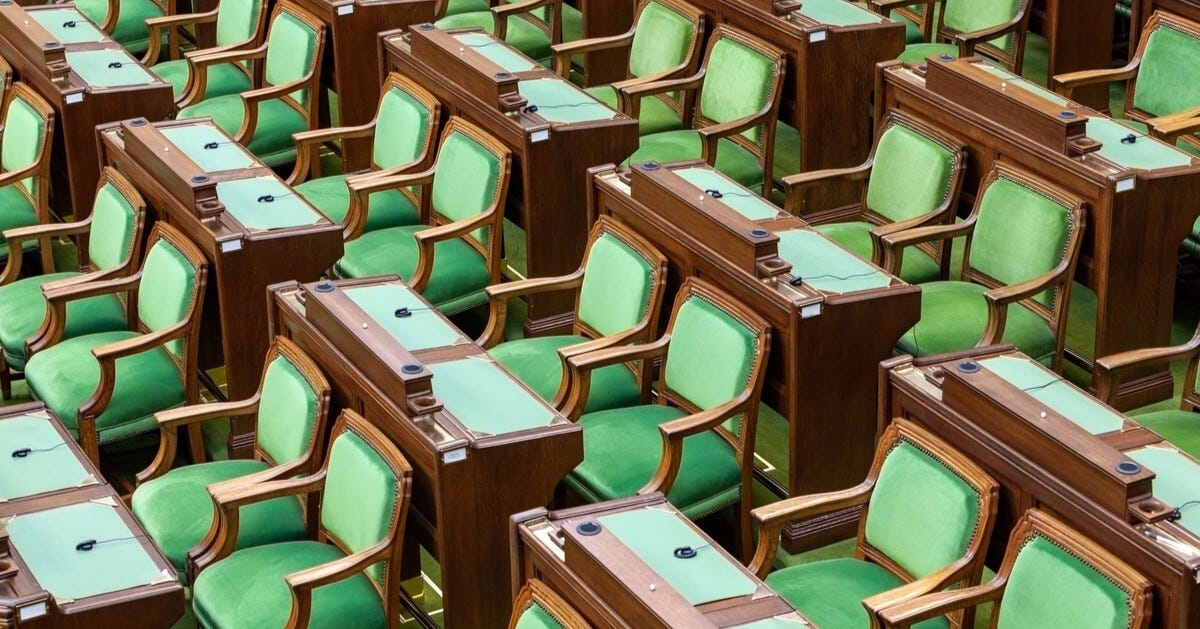OP-ED: Democracy waning in Canada due to federal policies
Professor Lydia Miljan writes that while much attention has been paid to Donald Trump, Canada is also facing a democratic backsliding.
Author: Lydia Miljan
In How Democracies Die, Harvard political scientists Steven Levitsky and Daniel Ziblatt argue that while some democracies collapse due to external threats, many more self-destruct from within. Democratic backsliding often occurs not through dramatic coups but through the gradual erosion of institutions by elected leaders—presidents or prime ministers—who subvert the very system that brought them to power. Sometimes this process is swift, as in Germany in 1933, but more often it unfolds slowly and almost imperceptibly.
The book was written during Donald Trump’s first presidential term, when the authors expressed concern about his disregard for democratic norms. Drawing on Juan Linz’s 1978 work The Breakdown of Democratic Regimes, Levitsky and Ziblatt identified several warning signs of democratic decline in Trump’s leadership: rejection of democratic rules, denial of the legitimacy of political opponents, tolerance or encouragement of violence, and a willingness to restrict dissent including criticism from the media.
While Trump is an easy target for such critiques, Levitsky and Ziblatt’s broader thesis is that no democracy is immune to these threats. Could Canada be at risk of democratic decline? In light of developments over the past decade, perhaps.
Consider, for example, the state of free speech and government criticism. The previous Liberal government under Justin Trudeau was notably effective at cultivating a favourable media environment. Following the 2015 election, the media enjoyed a prolonged honeymoon period, often focusing on the prime minister’s image and “sunny ways.” After the 2019 election, which resulted in a minority government, the strategy shifted toward direct financial support. Citing pandemic-related revenue losses, the government introduced “temporary” subsidies for media organizations. These programs have since become permanent and costly, with $325 million allocated for 2024/25. During the 2025 election campaign, Mark Carney pledged to increase this by an additional $150 million.
Beyond the sheer scale of these subsidies, there’s growing concern that legacy media outlets—now financially dependent on government support—may struggle to maintain objectivity, particularly during national elections. This dependency risks undermining the media’s role as a watchdog of democracy.
Second, on April 27, 2023, the Trudeau government passed Bill C-11, an update to the Broadcasting Act that extends CRTC regulation to digital content. While individual social media users and podcasters are technically exempt, the law allows the CRTC to regulate platforms that host content from traditional broadcasters and streaming services—raising concerns about indirect censorship. This move further restricted freedom of speech in Canada.
Third, the government’s invocation of the Emergencies Act to end the Freedom Convoy protest in Ottawa was ruled unconstitutional by Federal Court Justice Richard Mosley who found that the government had not met the legal threshold for such extraordinary powers. The same day of the ruling the government announced it would appeal the 200-page decision, doubling down on its justification for invoking the Act.
In addition to these concerns, federal government program spending has grown significantly—from 12.8 per cent of GDP in 2014/15 to a projected 16.2 per cent in 2023/24—indicating that the government is consuming an increasing share of the country’s resources.
Finally, Bill C-5, the One Canadian Economy Act, which became law on June 26, grants the federal cabinet—and effectively the prime minister—the power to override existing laws and regulations for projects deemed in the “national interest.” The bill’s vague language leaves the definition of “national interest” open to broad interpretation, giving the executive branch unprecedented authority to micromanage major projects.
Individually, these developments may appear justifiable or benign. Taken together, they suggest a troubling pattern—a gradual erosion of democratic norms and institutions in Canada.
Lydia Miljan is a professor of political science at the University of Windsor and a senior fellow of the Fraser Institute.



It appears that everything that I grew up with in Canada has been slowly eroding. It was not perfect then but there was justice - cause and effect - you did the crime you did the time. Incarnation was something you on the most part only experienced once. Democracy was the voice of the majority, now every fringe group, extremist point of view, and they who yelled, shouted the loudest last gained the political attention "VOTES". You cannot vote, drive a vehicle consume alcoholic beverages before 18/19 years of age : yet children pre teens are allowed gender modification and parents do not have any say in this - but teachers, politicians and other non professional do. If you complain, you are a bigot, racist, etc. These same people are trying and succeeding to change the history of our country. We were once a country to be envied and respected, now we are ridiculed and listened to only for idle curiosity. This last election we had the opportunity to get back on the road to respectability and we blew it. To all those "respectable and right (proper) thinking folks" who gave us this government - congratulations salutations.
We think that because we are still allowed to vote we are a democracy. This is an illusion and seeing how the last 2 elections were run, we can't even be sure they were run properly. Even the "new" old Liberal government governs without a budget, increases the pressure to censor, to digitalize, to overspend more than ever to drive us to bankruptcy, issues vague promises for national energy projects while keeping the moronic climate agenda and carbon tax, keeps promoting the "safe and effective" so-called vaccine in spite of contrary evidence, etc. We should have a referendum once in a while on the bigger government proposal, especially when they are costly. We can't rely on the honesty of the government who is not accountable and who has proven in the last 10 years how corrupt it was. We have sadly devolved to a 3rd world country.